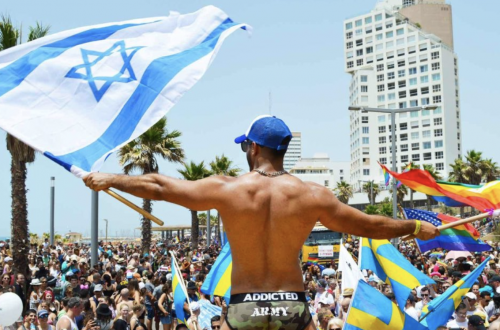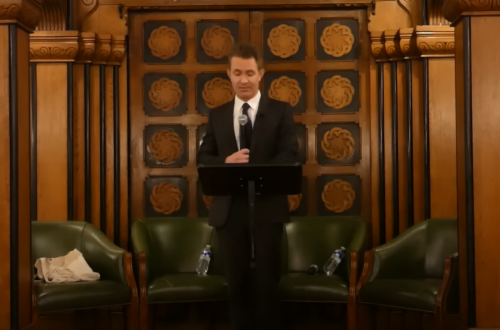Matti Friedman, a former AP reporter living in Jerusalem, may be the best English-language writer about Israel today. He avoids the cliches and ready-made formulas that infect the writing of many foreigners (and some Israelis) of all political stripes.
We’ve linked to articles he wrote about the awful foreign media coverage of the 2014 Gaza war and about the labor union Koach la Ovdim (Power to the Workers), which has organized and obtained wage increases for 2,700 Israeli home day-care providers, both Jewish and Arab.
Now he has written about the reaction (or more specifically, lack of reaction) among both Jews and Palestinians in Jerusalem to President Trump’s recognition of the city as Israel’s capital.
When President Donald Trump announced on Dec. 6 that the United States would recognize Jerusalem as Israel’s capital and move its embassy here, Arab leaders called for “days of rage” and a chorus of Western observers predicted an explosion. The predictions were predictable; Jerusalem is always said to be on the brink of catastrophe, and headlines are always reporting “tensions.”
The city is certainly volatile, considering: the proximity of sites holy to Muslims, Christians and Jews, all under Israeli control; the fact that more than one-third of the city’s residents are Palestinians, mostly Muslims, who aren’t Israeli citizens and tend to see Israeli rule as illegitimate; and the city’s existence in a region engulfed in a religious war. But what is truly interesting about Jerusalem is not the proximity of the brink, but the way the city’s residents often refuse to play their part in the script by stepping off.
After Mr. Trump’s announcement, amid warnings of “explosive” repercussions, I got e-mails from friends abroad, wondering whether I was worried, or whether I was safe. That Friday, a crowd of reporters gathered at the Old City’s Damascus Gate to document the violence that was supposed to erupt. But little happened; the protesters were outnumbered by journalists, and everyone went home. There weren’t spontaneous mass celebrations on the Jewish side or mass disturbances on the Arab side. The past week has been fairly normal.
Friedman goes on to note that mundane daily interactions between Jerusalem’s Jews and Arabs in places like the Talpiot industrial zone are far more common that violent confrontations.
So Palestinians and Israelis might not like each other, but their fates are becoming more tightly entwined, and everyone has more to lose if things fall apart.
You can question the wisdom or timing of Trump’s rather meaningless announcement while recognizing that in Israel, things are almost always more complicated than they are presented to outsiders.


